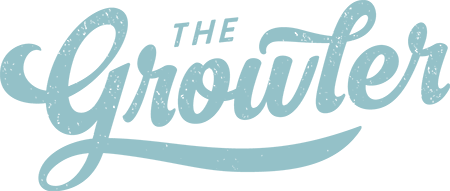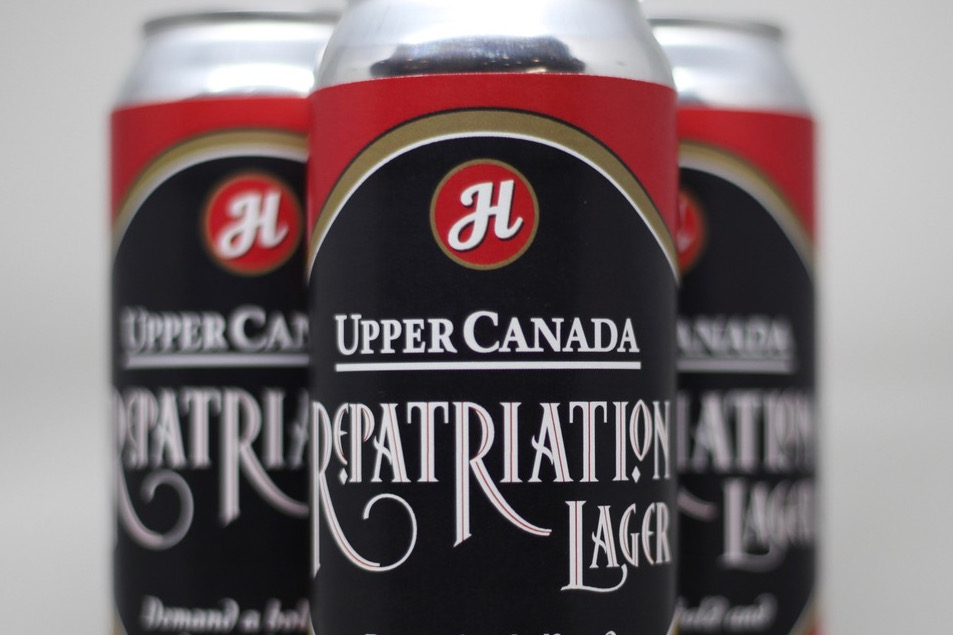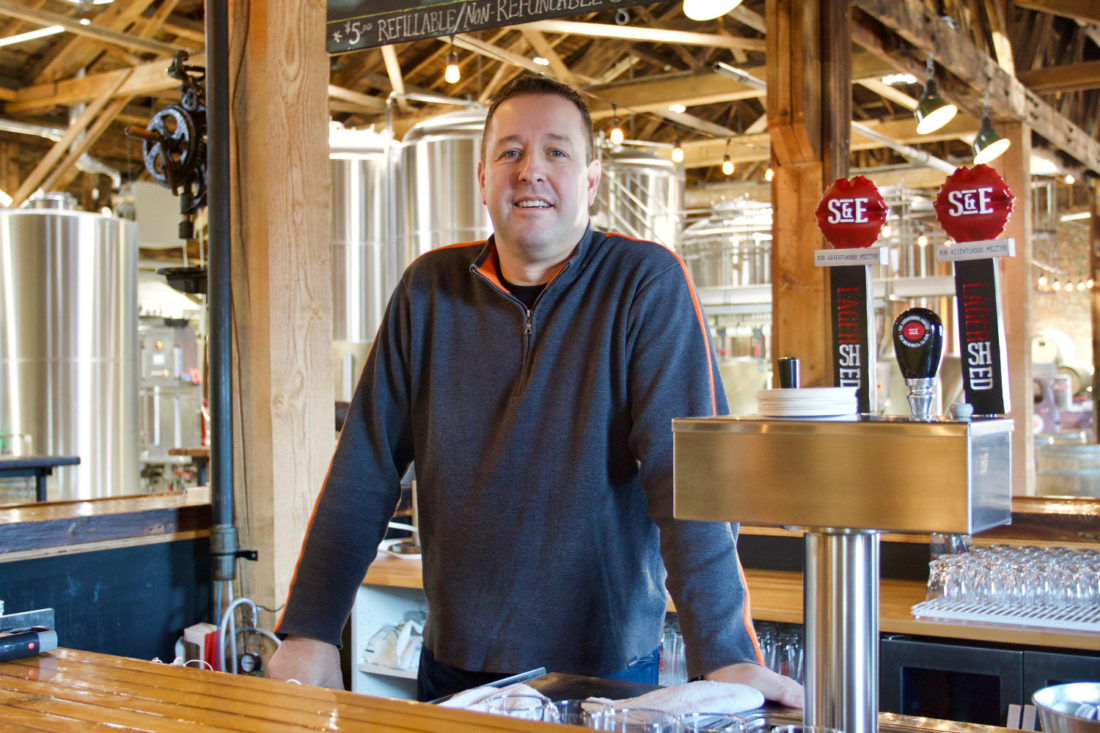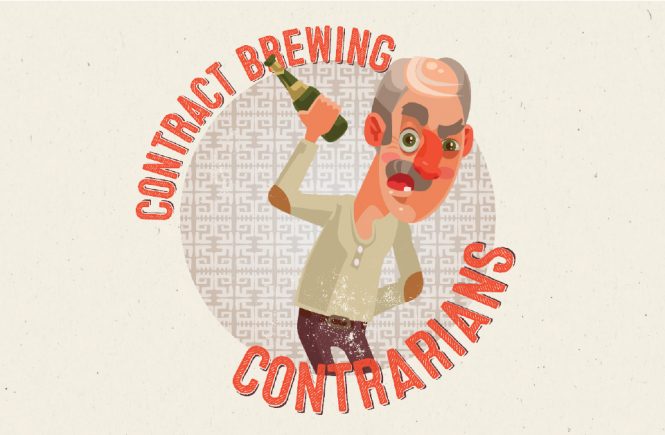An honest look at the state of the industry in 2024 with PEC’s Matron Fine Beer
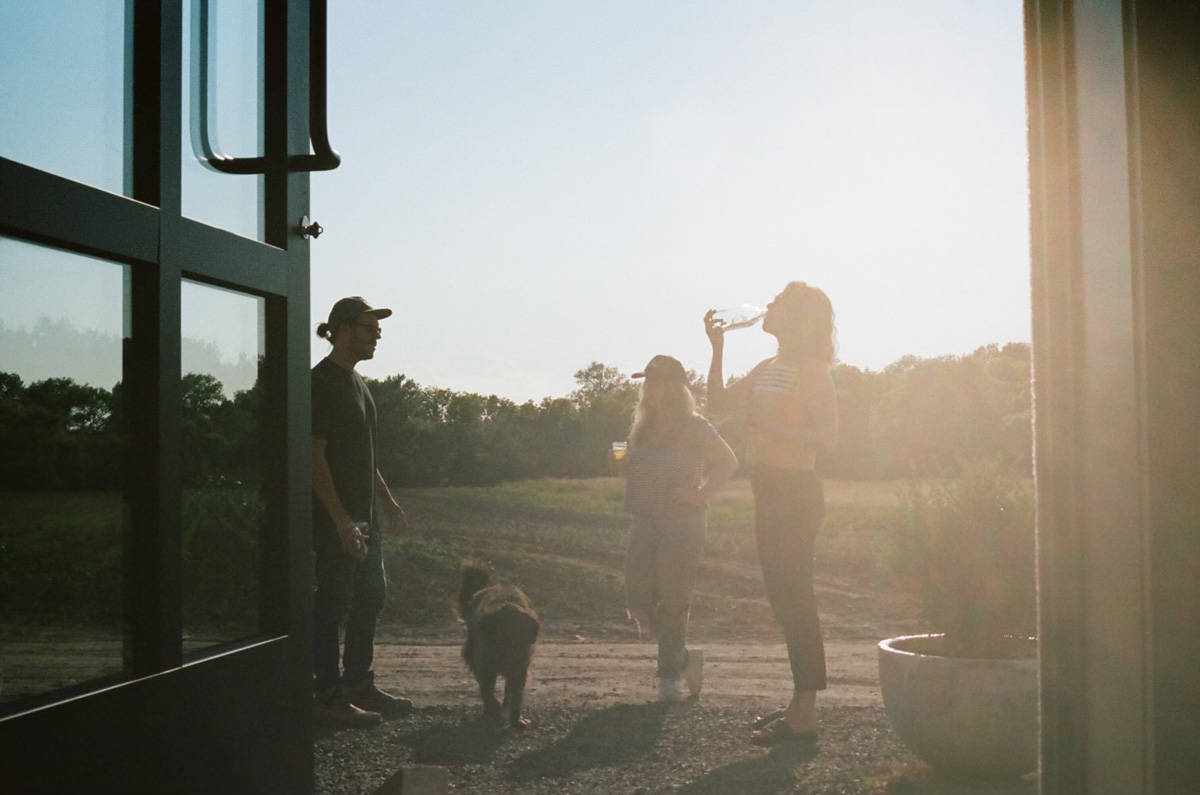
On Monday of this week, notable Prince Edward County brewery Matron Fine Beer released a newsletter that shared in a plaintive and emotional manner the situation in which they find themselves. As Dry January presses on and the deep freeze of midwinter takes hold in Ontario, I took time to sit down with Matron founders Justin Da Silva and Mallory Jones to get a sense of the circumstances that led them to express themselves with such bravery.
The Growler: It seems like a busy day there for you.
Justin Da Silva: Yeah. People are really, really showing up for it, which is just heartwarming. It’s wonderful.
The Growler: What are the difficulties that you’re facing specifically? Be they from a monetary standpoint or, you know, psychic?
J: It’s a multi-faceted thing, kind of a couple challenging years. We started right before the pandemic, and then obviously things kind of went crazy when the world shut down. We saw a fair amount of growth through that, which was great. The county is super busy. We were one of the first breweries to be going direct to customers via our web store, and we saw a lot of growth. And so we, you know, started to put things in place to keep up with that.
And then in the post pandemic world, it slowed down. Rising interest rates, cost of goods have gone crazy. Taxes just keep going up. And then with this year, it’s like we’ve had two pretty challenging years kind of recovering from the pandemic. This month it’s the CEBA loan amongst other things. So we’ve had to make some major changes to our staffing. Several long-standing employees have been laid off temporarily which was really hard. Hoping to bring them back a little bit later in the winter time.
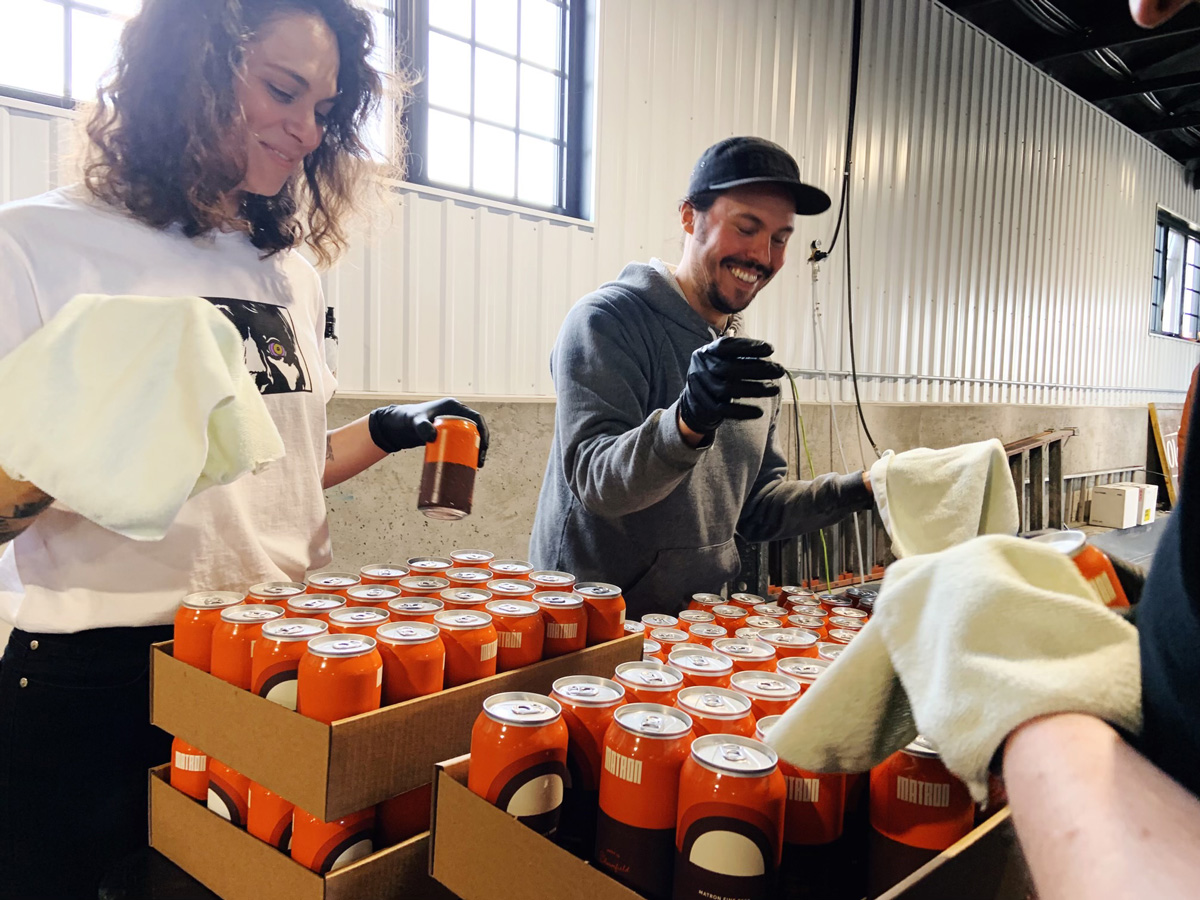
The Growler: How many people did you have at the highest point?
J: Probably nine of us at our highest point, like mid-summer. And that’s, production, front of house, delivery, sales. I know, we’re not the only ones. I guess there’s some sort of solace in that, but solace doesn’t pay the bills.
The Growler: It does not.
J: I had lots of messages from other business owners that are beer and hospitality adjacent. A couple restaurant owners reached out to me asking how they could help. A supply company reach out to me and he’s got similar stories of having to quickly and drastically change his staffing and his business. Because things are so challenging in craft beer right now.
The Growler: So I guess the question then is what can people do to help in the short turn?
J: Honestly, it’s go out to small restaurants, go out to small businesses. And get a pint if you can. Go support your favorite craft breweries, the ones that you want to see around. I’m sure we’ll see more of this. We’ll see closures.
I saw Revel Cider post about something similar. I guess it was in the fall. They were in a pretty tight spot and reached out to their community saying “we need help and we’re talking about it.” But I think a lot of the time people are afraid to be open and vulnerable about, like how their business actually is because they want to put on a good face.
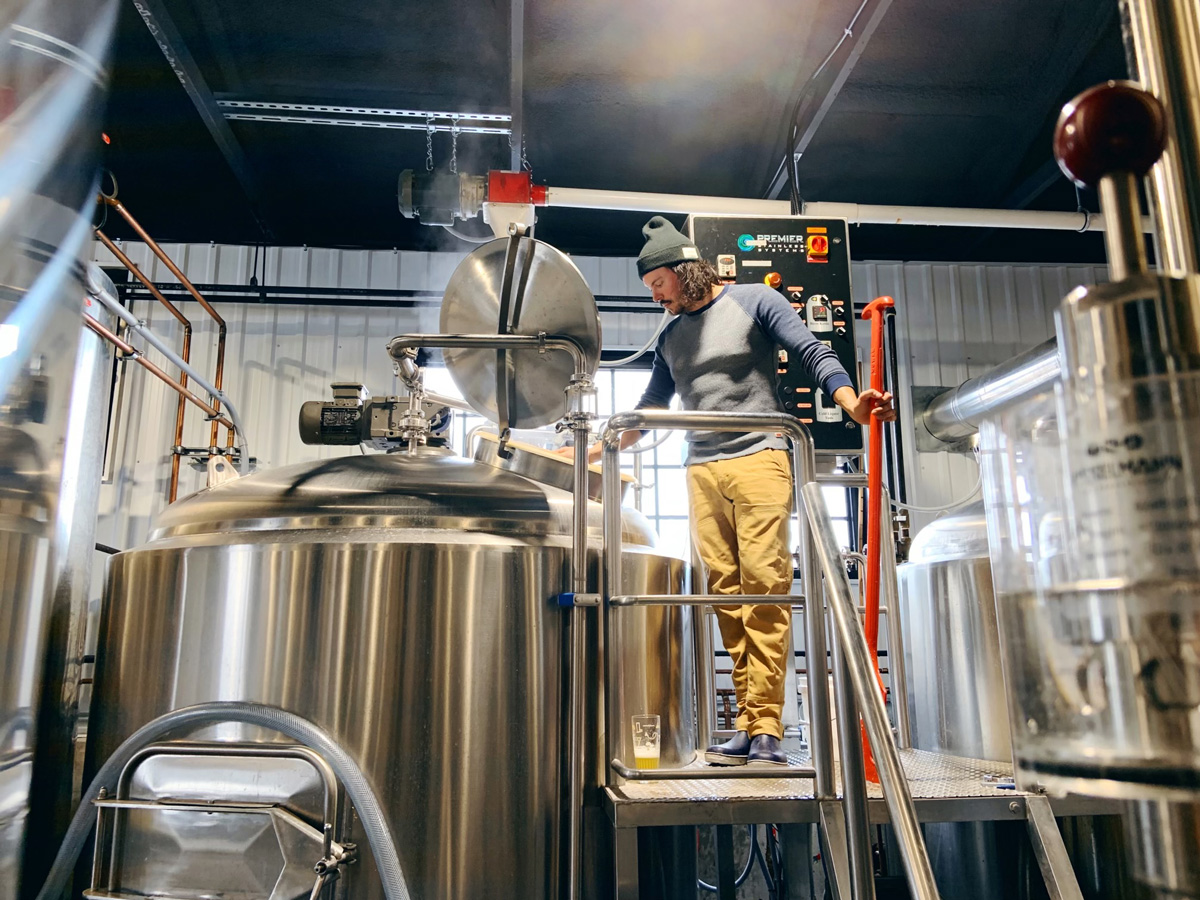
Mallory Jones: A lot of conversations with other owners as well where there’s always the under rumblings of that, like people aren’t doing well, but no one really wants to just openly say that. They wait for someone else to put it out there first, which we’ve become pretty quick to do because, I mean, we’re all going through it. It’s something. I think that talking about it as a group is incredibly helpful. There’s lessons learned and maybe they can be shared amongst people as well. But yeah, no one, no one wants to. It doesn’t feel good. We don’t feel great after showing our cards that way, like we’re pretty independent humans as individuals, as owners, and then as a collective group, we like to keep our shit pretty tight. So I don’t know, talking about the fact that it’s not going according to plan was incredibly hard.
J: I’m sure if you talk to every single brewery in Prince Edward County right now, they’d have similar issues, they’re probably in tight situations as well. We had a meeting with Todd Smith, our local MPP, back in the late fall about the challenges that craft brewers are facing right now. And he was like, “oh my God, I have no I had no idea. How can we help as a government?” I know OCB is lobbying for assistance right now, eliminating unnecessary antiquated taxes to our industry. But coming directly from the horse’s mouth here, these are our issues.
The Growler: I know that we were trying to set a narrative back in November prior to the Beer Store announcement. But I don’t think they took on board the urgency of the tax situation.
J: If the provincial government really believes that craft brewing is like something that they want in the province and they want the culture and rural job creation and industry, they need to help us out right now because our cost of goods is basically where all of our margins were before. And since we opened in 2019, they’ve nearly doubled. I’ve been in the beer industry for almost 14 years now, and there hasn’t been an increase that substantial in such a short period of time.
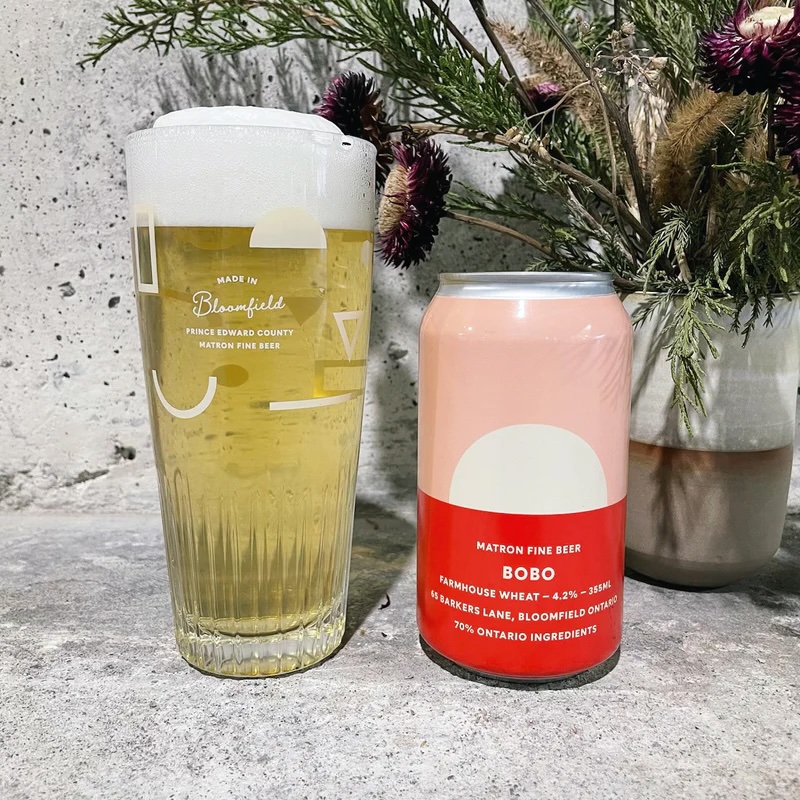
If you’re a brewery reading this, you can take heart in the idea that you’re not the only ones suffering from the problems with which Matron Fine Beer is afflicted. You might do well to contact your own MPP and have a similar conversation about the issues that are causing you serious problems. There’s no shame in telling your elected representatives what you need. That’s what they’re there for.
And if you’re a reader of The Growler, you might consider purchasing products from Matron, who use primarily ingredients grown in Ontario and have been leaders in the use of local hops, grain, and produce in their lineup of beverages. While the LCBO stocks their Janky IPA and Muff Darkbier on a continual basis, their brewery direct offerings are more varied.
Why not consider Bobo? At 4.2%, it’s a low alcohol saison, firm yet floral and fruity with 70% Ontario ingredients. Or, if you’re still in the middle of that New Year’s Resolution, you could consider Pony. Branded as an Itty-Bitty Pils, it’s the lager equivalent of a Shetland; surprisingly full bodied although unlikely to give you difficulty when saddled.
